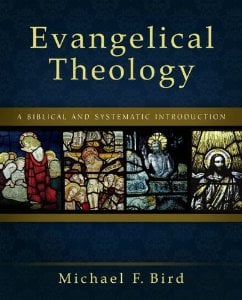 From Zondervan:
From Zondervan:
One area that evangelicals have generally been weak on is that of tradition. Strangely enough this is probably one area where liberals and evangelicals actually have something in common. Some more ardently liberal theologians look back on tradition as the primitive and antiquated residue of a naive and superstitious period of history, at least when compared to their own progressive and enlightened selves. Conversely, many evangelicals have tended to fear tradition as something that is cold, stale, and purely of human origin.
Ironically, the mantra of “No creed but Christ, no book but the Bible” is not actually found in the Bible; yet it virtually has canonical status in some churches. They do not seem to realize that the New Testament itself is the written product of a long traditioning process (Luke 1:1-2; 1 Cor 11:23 -25), where traditions were passed on in the early church (Rom 6:17; 1 Cor 11:2; 15:1 -3; 2 Thess 2:15; 2 Tim 1:13). In response to the threat of Gnosticism in the second century, patristic authors like Irenaeus appealed to an authorized way of reading Scripture that went back to the apostles themselves. For the early church, Scripture was not to be read in an arbitrary, introspective, or esoteric way; rather, Scripture was to be read, interpreted, and applied in continuity with the apostolic explanation of the story line of Scripture.
It was the Gnostics who read Scripture on their own and in isolation from the testimony of the wider church. And it was abandonment of the apostolic tradition of reading Scripture that led the Gnostics into heresy by marrying their biblical interpretation to a particular adaption of platonic cosmology, whereby the world was created by a wicked demiurge from whom Jesus came to save us. Lest we think that problem unique, I would point out that some eighteenth-century English Baptists, through a mix of biblicist and unitarian tendencies, regarded the Trinity as a nonessential element of the faith. Here is the warning: if you disregard Christian tradition, you can end up becoming either a Gnostic or a Unitarian!











